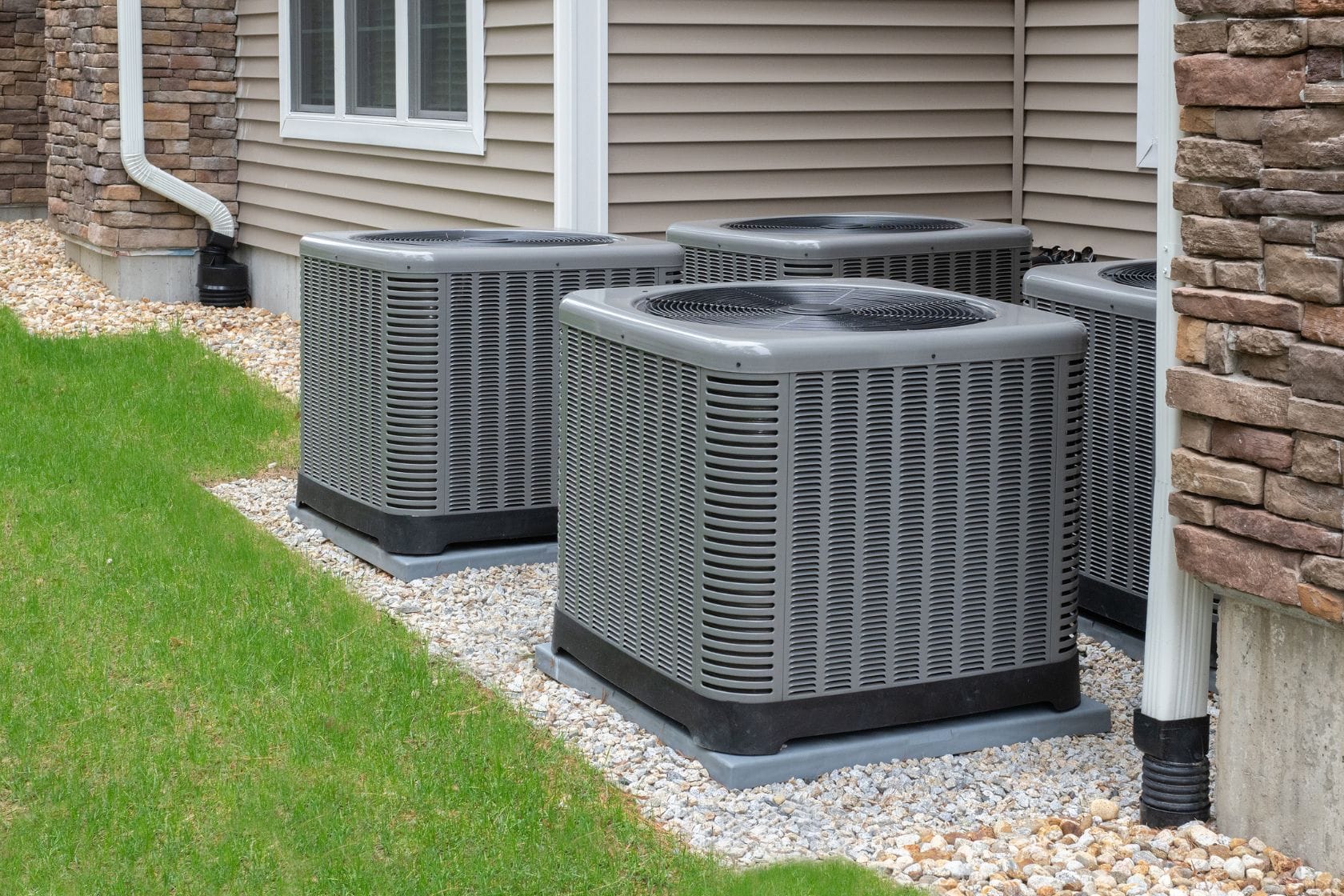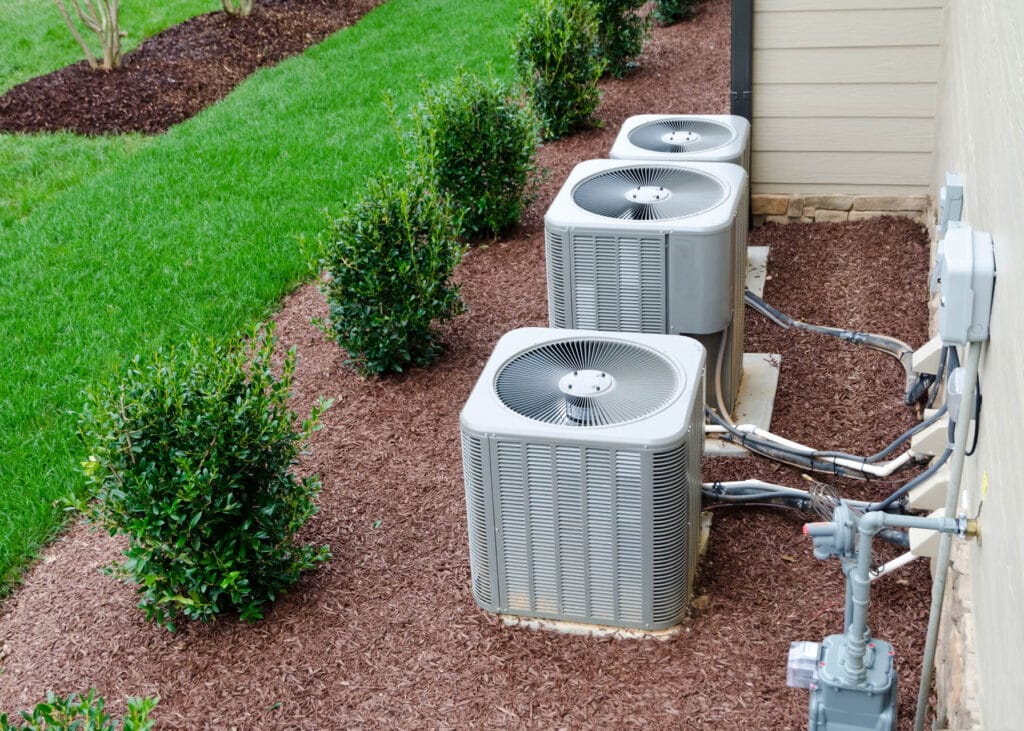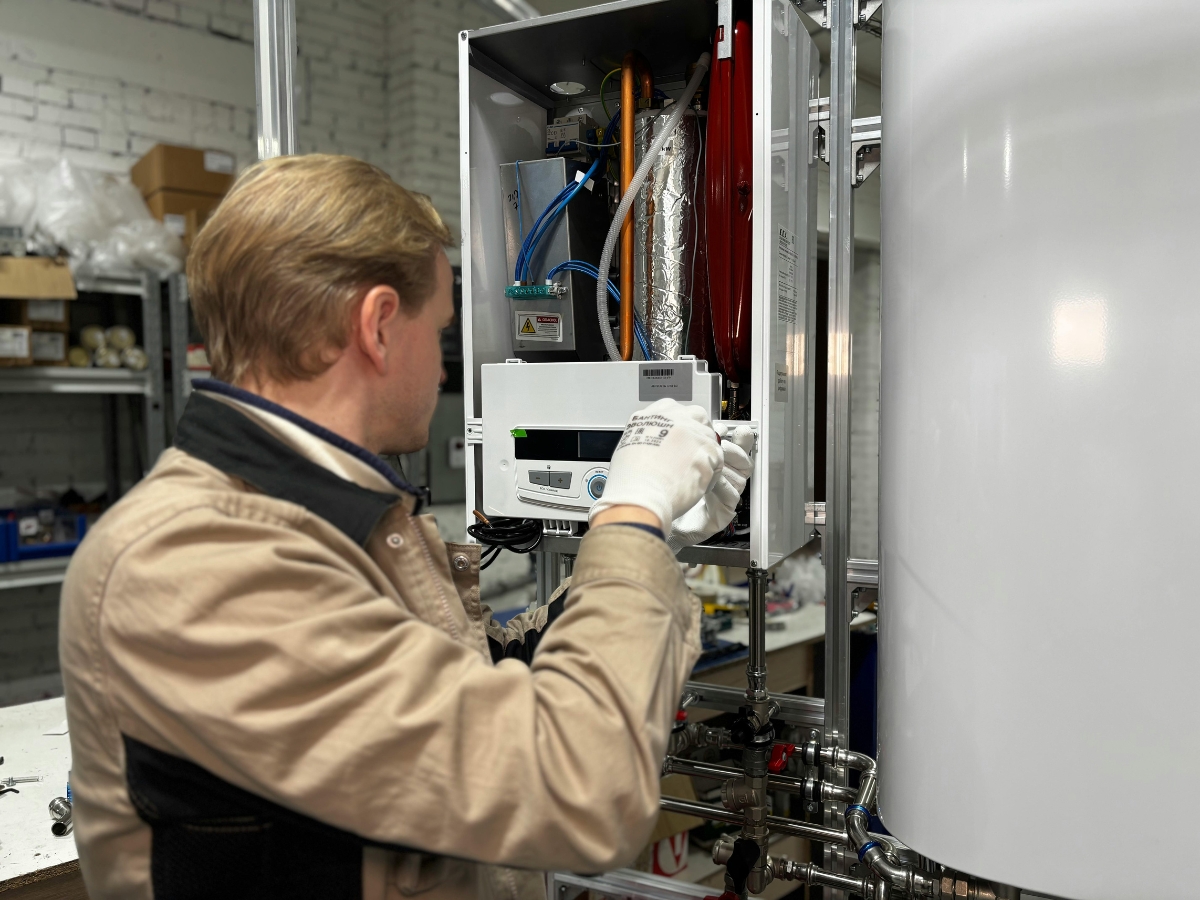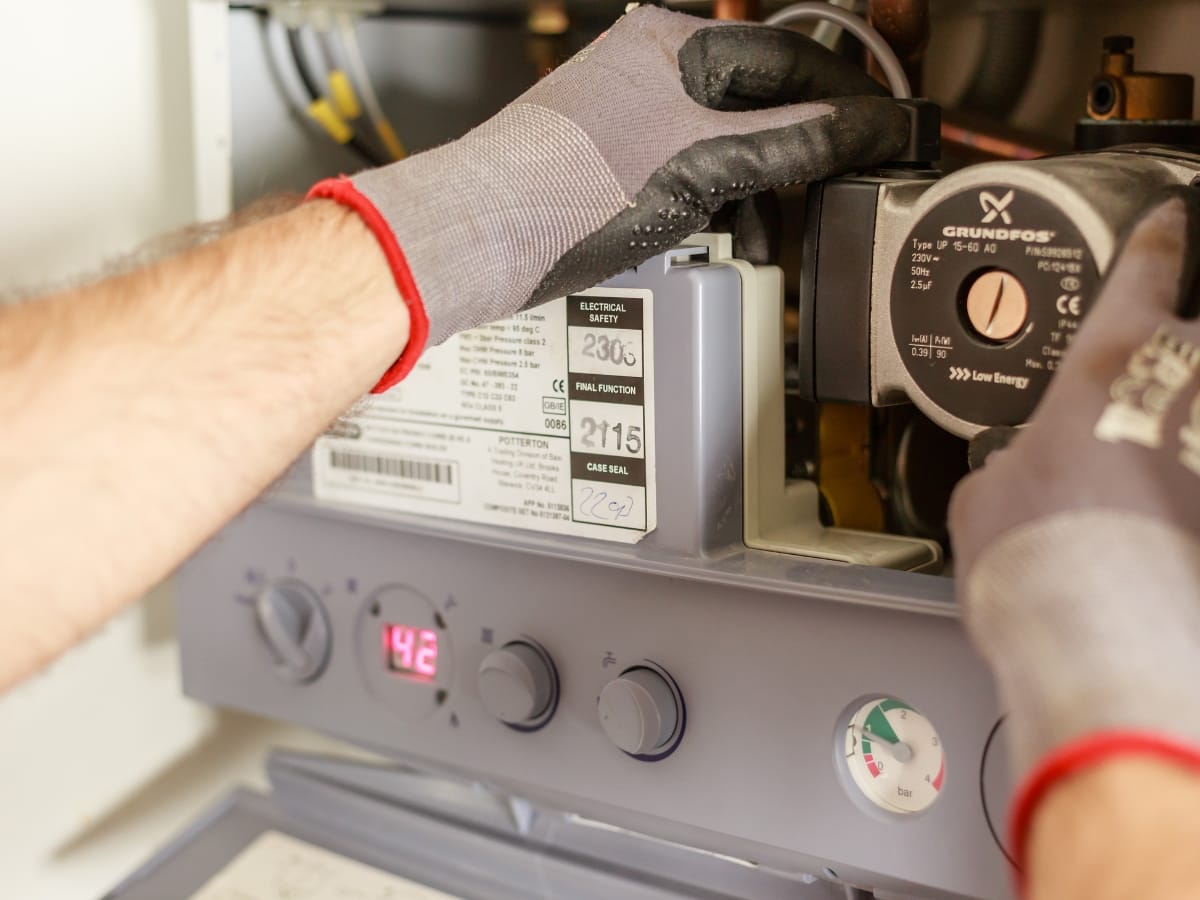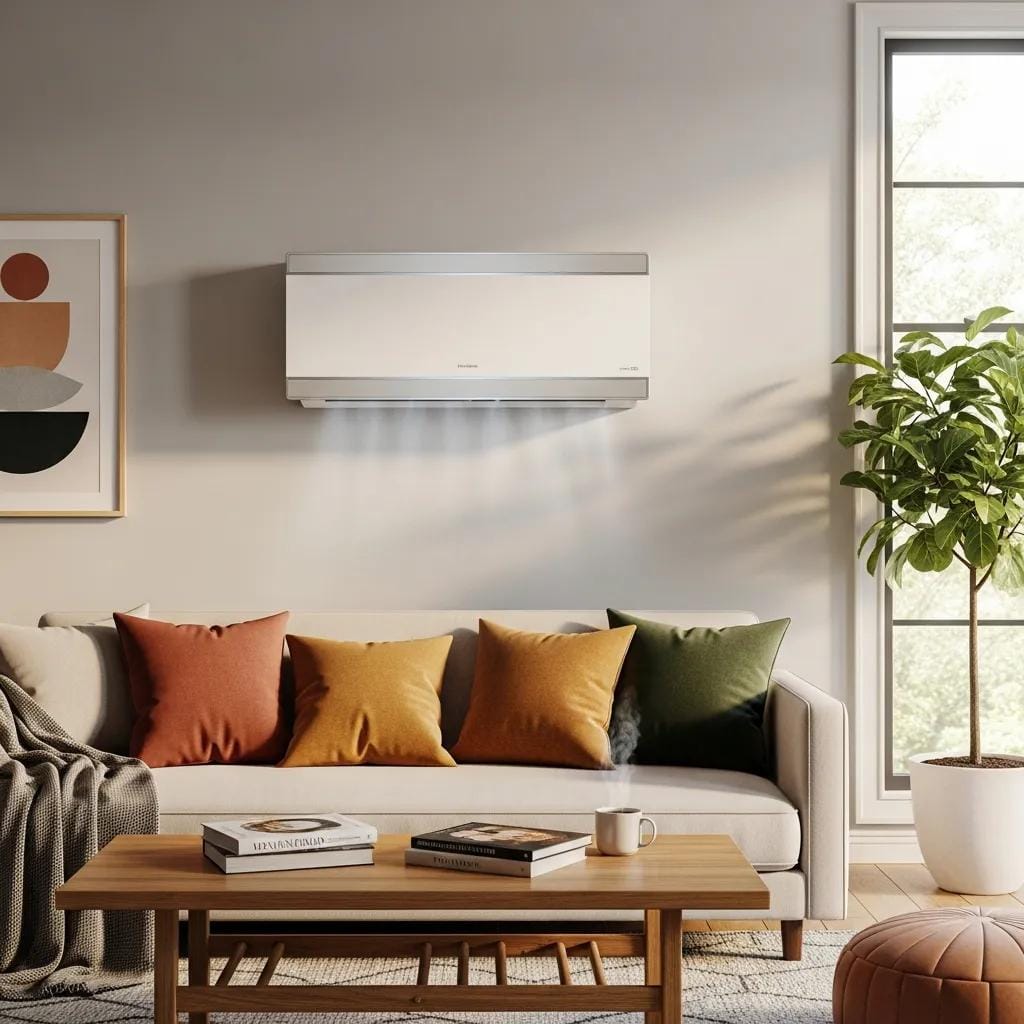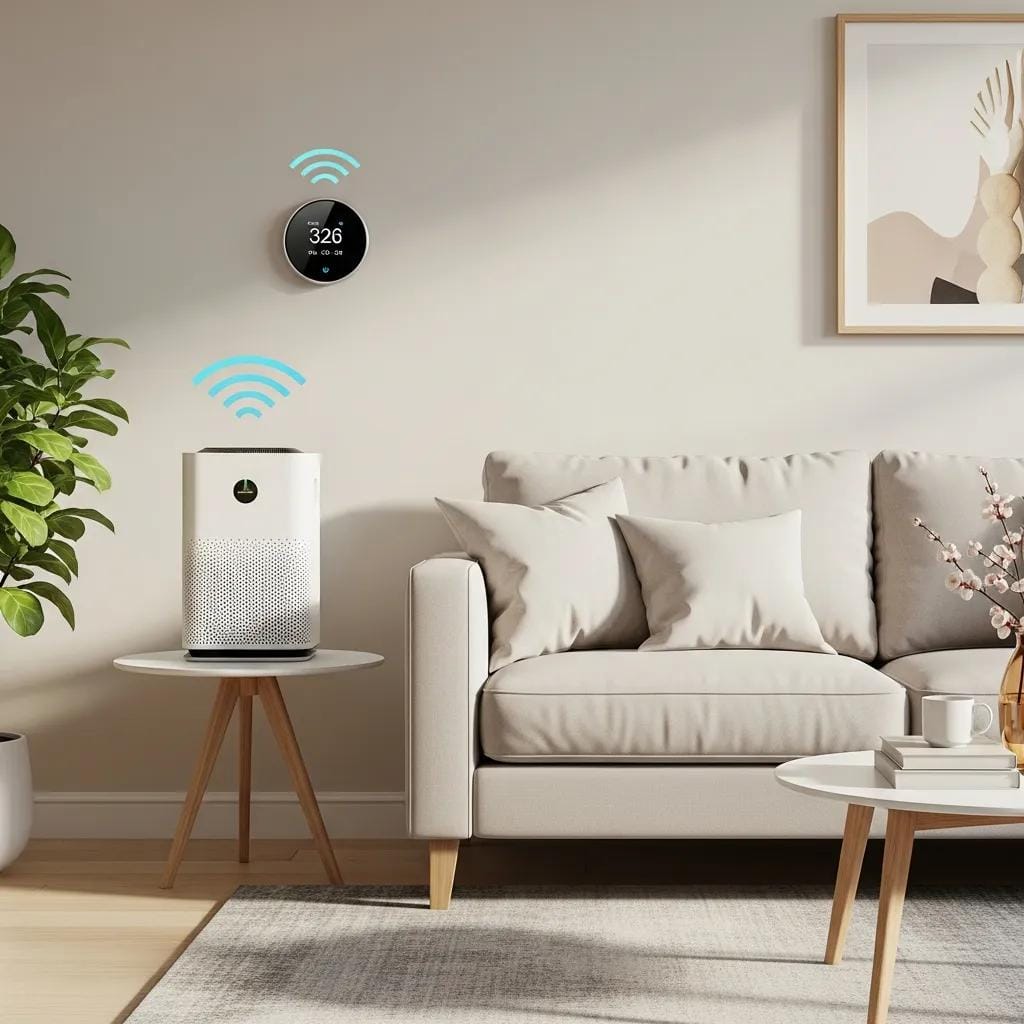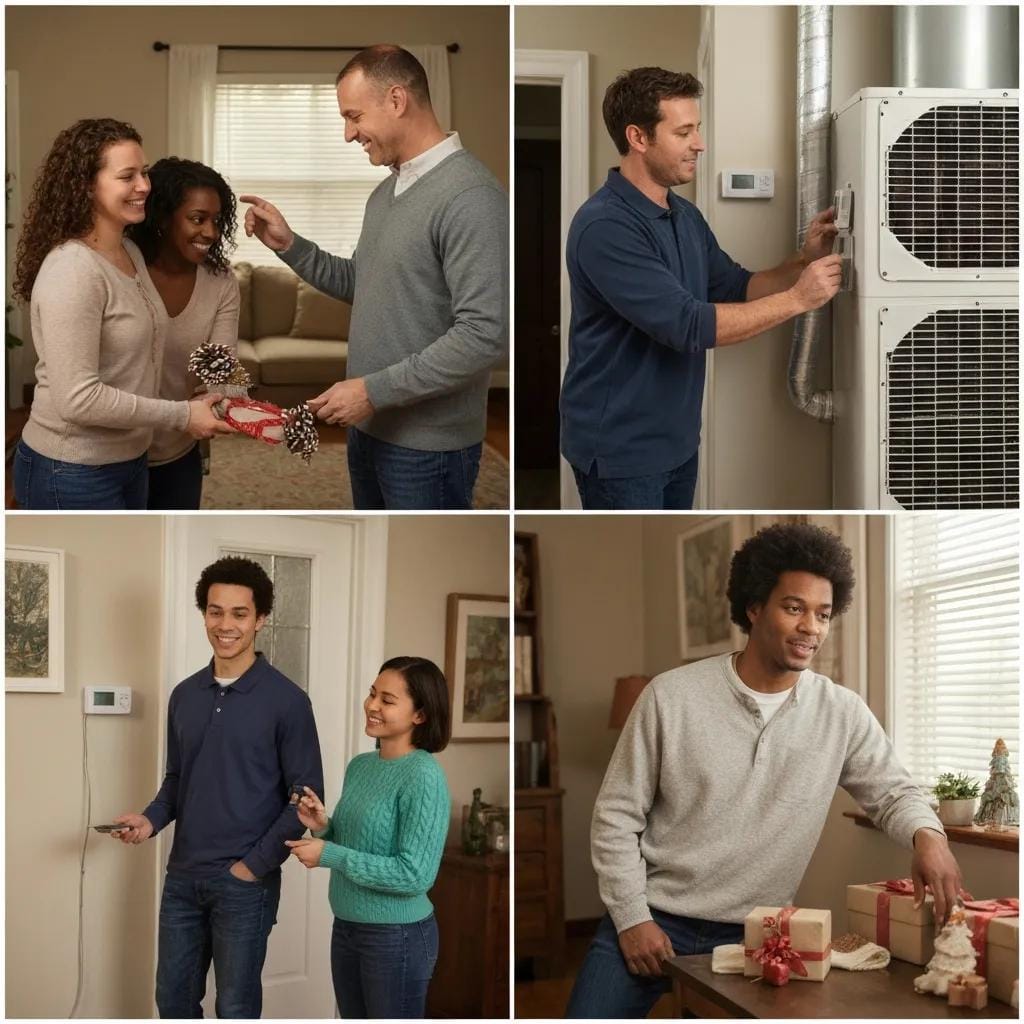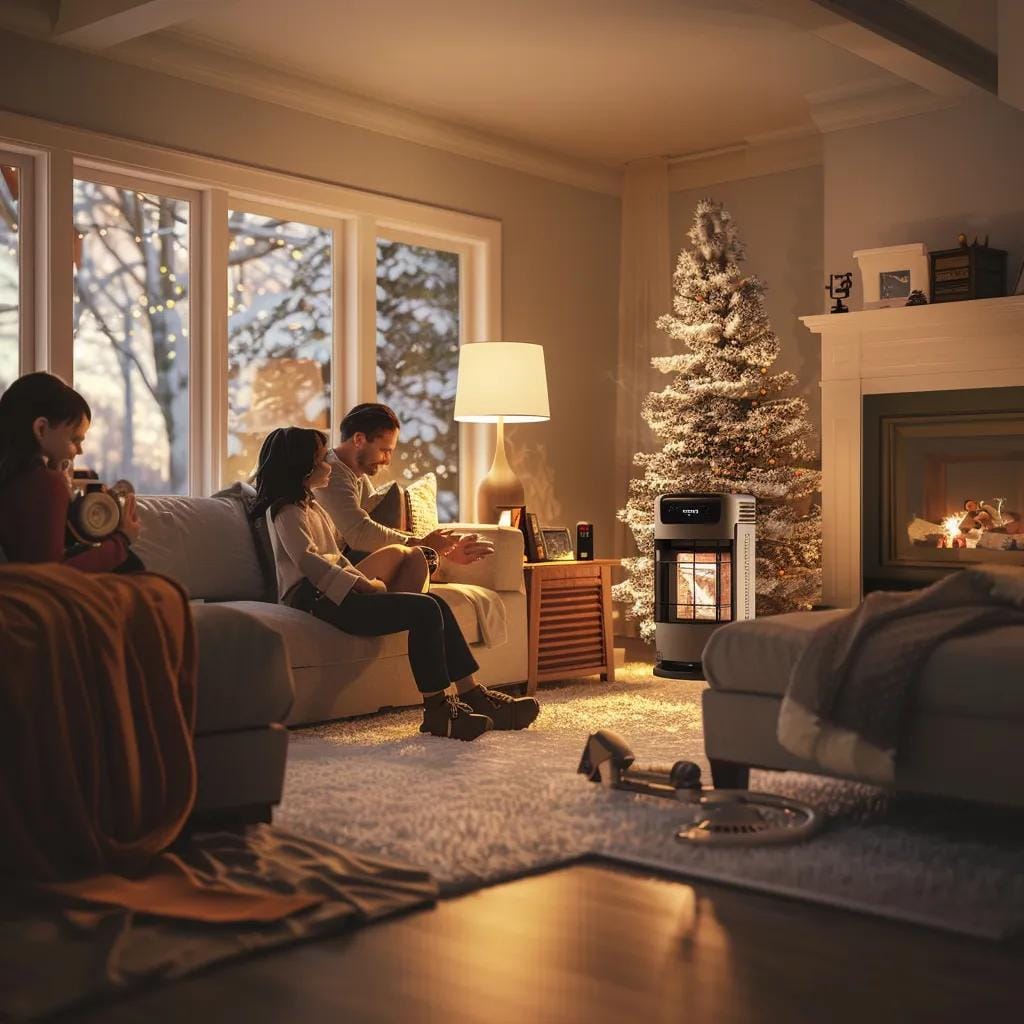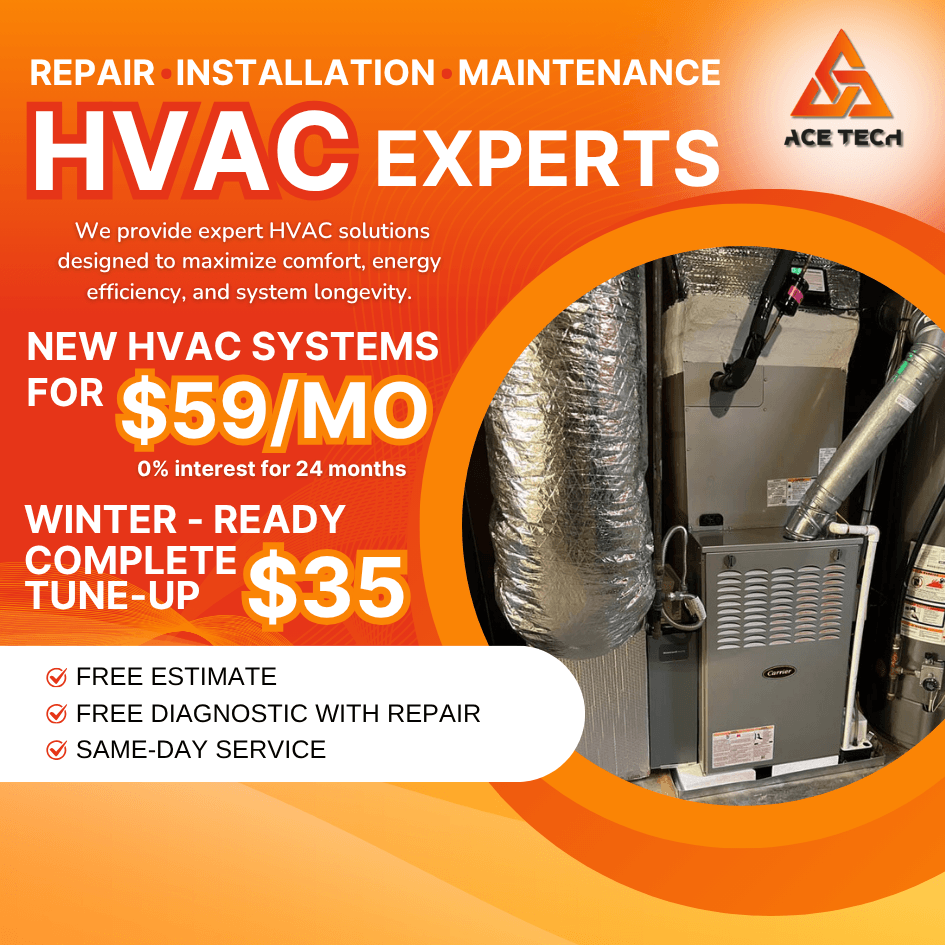If you’re wondering how to decrease energy bills, your HVAC system could be the biggest culprit. Heating and cooling make up nearly half of a household’s energy consumption, and an outdated or inefficient system can send your utility costs soaring.
The good news? Smart HVAC system upgrading can significantly cut energy waste while keeping your home comfortable year-round.
From upgrading to an energy-efficient HVAC unit to integrating smart technology, small improvements can lead to substantial long-term savings. Whether your goal is to replace an outdated HVAC system, install HVAC zoning for better temperature control, or simply fine-tune your existing setup, the right upgrades can make a noticeable difference.
In this guide, we’ll explore the best strategies to optimize your HVAC system and lower your monthly utility costs—without sacrificing comfort.
How to Decrease Energy Bills
The Benefits of Upgrading Your HVAC System
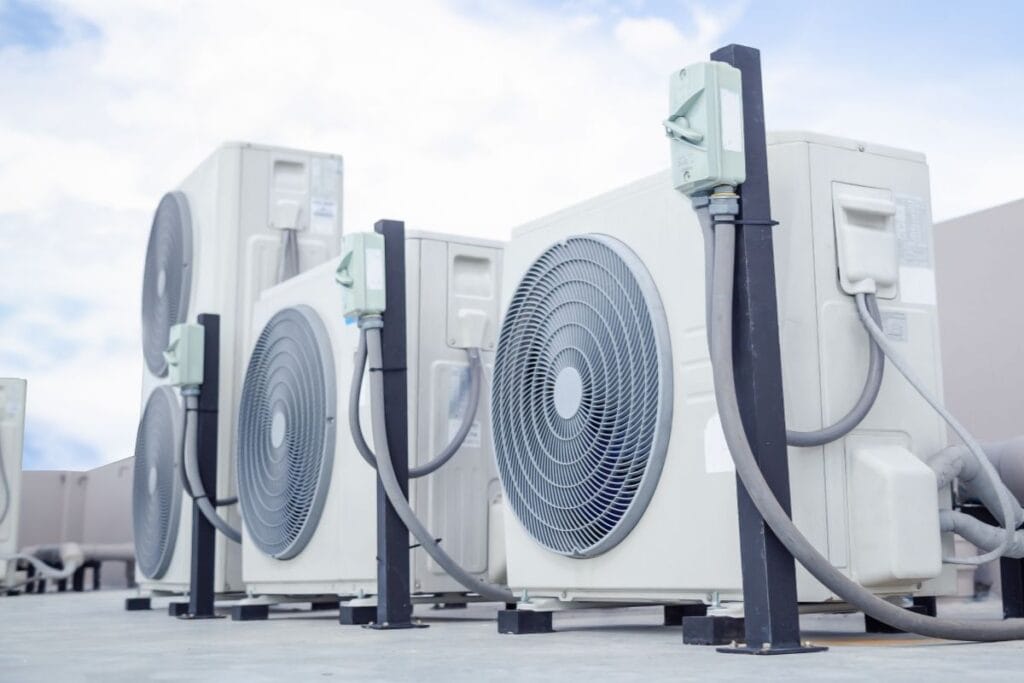
If you’re looking for a surefire way on how to decrease energy bills, upgrading your HVAC system is one of the smartest investments you can make. A modern, energy-efficient system not only cuts energy costs but also improves home comfort, reduces maintenance expenses, and benefits the environment.
Lower Energy Bills
One of the biggest benefits of upgrading your HVAC system is immediate energy savings. Newer systems are designed to use less electricity while delivering superior heating and cooling. Many high-efficiency models feature:
- Higher SEER (Seasonal Energy Efficiency Ratio) ratings – The higher the SEER, the more energy-efficient the system. A new system can reduce your energy consumption by up to 20-50%.
- Smart technology integration – Features like HVAC zoning and programmable thermostats prevent wasted energy by only heating or cooling areas that need it.
With a modern system, you’ll notice a drop in your utility bills almost immediately.
Enhanced Comfort
An aging HVAC system often struggles to maintain consistent temperatures, leading to uncomfortable hot and cold spots. Upgrading your HVAC can solve this problem with:
- Variable-speed blower motors – These adjust airflow automatically to maintain steady, even temperatures throughout your home.
- Advanced humidity control – Newer systems help regulate indoor moisture levels, reducing humidity in the summer and preventing dry air in the winter.
- HVAC zoning – This allows you to control different areas of your home separately, so you’re not wasting energy cooling unoccupied spaces.
A new system doesn’t just improve efficiency—it creates a more comfortable living environment year-round.
Reduced Maintenance Costs
If you’re tired of dealing with constant repairs and looking for ways on how to decrease energy bills, an HVAC system upgrade project could be the perfect solution. Newer systems are built with durable components that:
- Require fewer repairs compared to older systems that frequently break down.
- Operate more efficiently, reducing overall wear and tear.
- Have longer lifespans, meaning you won’t need to replace your system as soon as you would with an aging one.
Although an upgrade requires an initial investment, you’ll save money over time by avoiding frequent repair bills and emergency service calls.
Eco-Friendly Performance
Switching to an energy-efficient system isn’t just good for your wallet—it’s great for the planet. Modern HVAC systems:
- Consume less energy, reducing your overall carbon footprint.
- Use environmentally friendly refrigerants that don’t contribute to ozone depletion.
- Help lower greenhouse gas emissions by reducing reliance on fossil fuels.
By upgrading your HVAC system, you’re not only making a smart financial choice but also contributing to a cleaner, more sustainable future.
Best HVAC Options for Maximum Savings
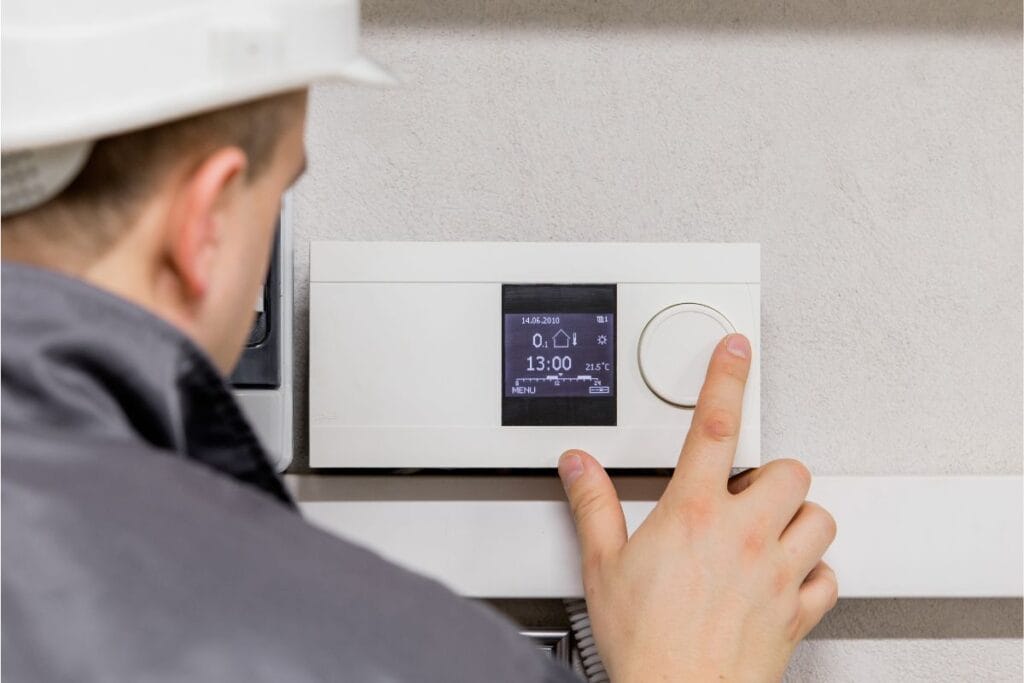
When it comes to finding the best solutions on how to decrease energy bills, choosing the right HVAC system upgrading options can make all the difference. By selecting high-efficiency models, integrating zoning technology, and taking advantage of smart controls, you can maximize energy savings while maintaining a comfortable home environment. Here are the top upgrade options to consider.
Upgrade HVAC System with High-Efficiency Models
Investing in a high-efficiency HVAC system is one of the most effective ways to cut down on energy consumption and utility costs. Modern systems are designed to provide superior heating and cooling while using less power.
- ENERGY STAR-certified models – These systems are tested for optimal efficiency and can reduce energy use by up to 20%. They meet strict guidelines set by the U.S. Environmental Protection Agency, ensuring lower operational costs.
- Higher SEER-rated models – The Seasonal Energy Efficiency Ratio (SEER) measures how efficiently an air conditioner or heat pump operates. The higher the SEER rating, the better the performance. Upgrading to a high-SEER system can significantly reduce cooling costs during peak summer months.
- Advanced compressor technology – Modern systems use variable-speed compressors that adjust power usage based on demand, preventing unnecessary energy waste.
If you’re still using an older, inefficient system, upgrading to a high-efficiency model will result in noticeable energy savings and long-term cost reductions.
Installing HVAC Zoning for Better Energy Control
If certain areas of your home always feel too hot or too cold, installing HVAC zoning could be the solution. This technology allows you to control temperatures independently in different areas of your home, improving comfort and efficiency.
- Customized temperature control – With zoning, you can set different temperatures for specific rooms or floors, eliminating the need to heat or cool unused spaces.
- Reduced energy waste – Traditional HVAC systems heat or cool the entire home, even in rooms that don’t need it. Zoning directs conditioned air only where it’s needed, cutting energy consumption.
- Smart dampers and thermostats – These work together to regulate airflow efficiently, ensuring each zone stays at its desired temperature without overworking the system.
HVAC zoning is a great way to decrease energy bills while improving home comfort, especially in multi-level homes or large spaces with varying heating and cooling needs.
Smart Thermostats & HVAC Programs
Incorporating smart technology into your HVAC system is another way to enhance energy efficiency and lower costs. If you’re looking for solutions on how to decrease energy bills, smart thermostats and incentive programs can help you optimize heating and cooling without lifting a finger.
- Smart thermostats – These devices learn your schedule and adjust temperatures automatically to prevent unnecessary energy usage. Features like remote access, scheduling, and energy usage reports help you make smarter decisions about heating and cooling.
- HVAC programs and rebates – Many utility companies offer HVAC programs that provide rebates or incentives for installing energy-efficient upgrades. These programs can help offset the upfront cost of a new system while encouraging long-term energy savings.
By combining smart thermostats with an energy-efficient HVAC system, you can significantly cut energy waste and enjoy a more automated, cost-effective way to maintain home comfort.
Affordable HVAC Unit Upgrades That Make a Big Impact
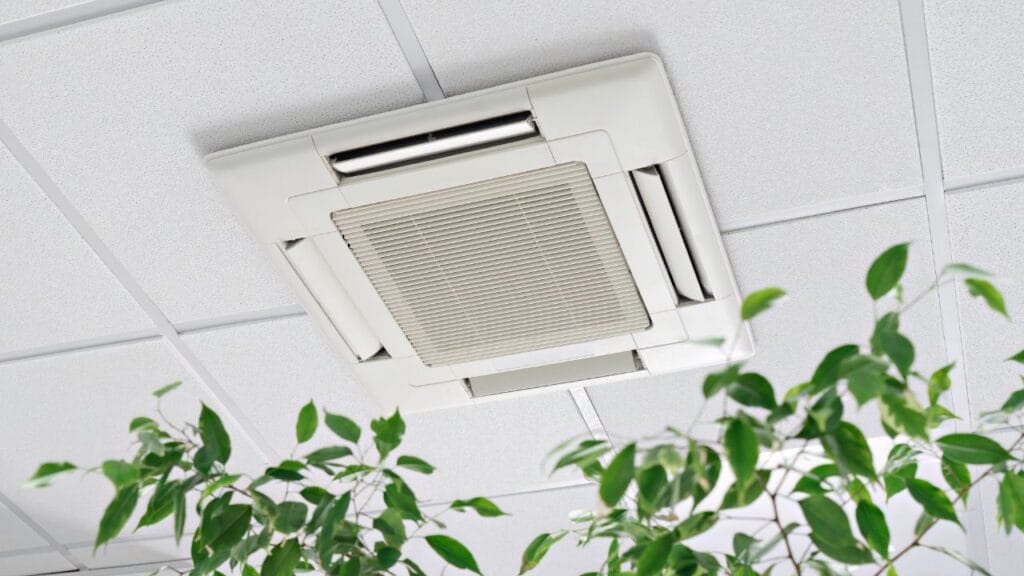
Not ready for a full system replacement? No problem. There are several HVAC system upgrading options that can enhance efficiency and decrease energy bills without requiring a major investment. From improving airflow with a clean filter to optimizing ventilation, these budget-friendly upgrades can help your system perform at its best.
Improve Indoor Air Quality with a New Filter
One of the simplest and most cost-effective ways to boost HVAC efficiency is by replacing yourfilter regularly. A clogged or dirty filter forces the system to work harder, increasing energy consumption and reducingindoor air quality.
- Better airflow – A clean filter allows air to move freely through the system, reducing strain on the components.
- Lower energy usage – When the system doesn’t have to overcompensate for a dirty filter, it runs more efficiently, leading to lower utility bills.
- Improved indoor air quality – New filters trap dust, pollen, and other airborne pollutants, keeping the air in your home cleaner and healthier.
For the best results, check your HVAC filter every month and replace it as needed—typically every 1 to 3 months, depending on usage and filter type.
Variable-Speed Blower Motors for Better Efficiency
A variable-speed blower motor is a smart upgrade that helps regulate airflow and improve overall system efficiency. Unlike traditional single-speed motors that operate at full blast or not at all, variable-speed models adjust to demand, using only as much energy as necessary.
- More precise temperature control – These motors provide a steady stream of conditioned air, preventing sudden temperature swings.
- Lower energy consumption – Since the motor doesn’t always run at full power, it uses less electricity compared to older, single-speed models.
- Enhanced comfort – By maintaining consistent airflow, variable-speed blowers help eliminate hot and cold spots throughout your home.
This upgrade is especially beneficial for homes in climates with extreme temperature fluctuations, where maintaining even airflow can make a big difference in both comfort and energy savings.
Economizers & Smart Ventilation Systems
An economizer is an HVAC feature that takes advantage of cooler outdoor air to reduce the need for mechanical cooling. This simple yet effective upgrade can cut down on energy consumption, especially in moderate climates where outside air can be used for natural cooling.
- Lower cooling costs – When outside temperatures are favorable, the economizer pulls in fresh air instead of relying on the air conditioner.
- Better ventilation – This upgrade improves indoor air quality by circulating fresh air and reducing indoor pollutants.
- Smart automation – Some economizers come with sensors that automatically adjust based on temperature and humidity levels, optimizing efficiency without requiring manual adjustments.
Similarly, smart ventilation systems help regulate airflow and prevent energy loss by ensuring that fresh air is brought in only when needed. These systems work well in tandem with other HVAC system upgrading strategies, providing additional comfort and efficiency.
Additional Energy-Saving Tips Beyond HVAC System Upgrading
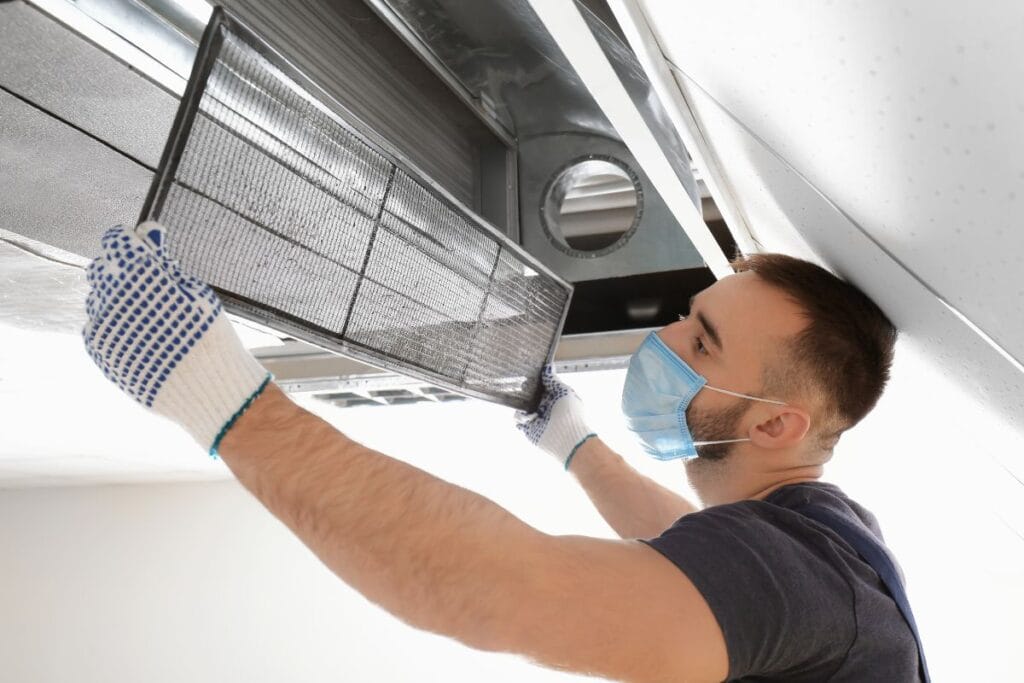
While upgrading your HVAC system is one of the most effective ways to decrease energy bills, there are additional steps you can take to maximize efficiency and keep energy costs down. Simple home improvements like regular maintenance, better insulation, and strategic airflow adjustments can help your HVAC system work smarter, not harder.
Regular Maintenance & Tune-Ups
Even the most advanced HVAC system won’t perform efficiently without proper maintenance. Routine check-ups help identify potential issues before they become costly problems and ensure your system is running at peak efficiency.
- Schedule seasonal HVAC inspections – A professional technician can clean components, check refrigerant levels, and inspect for wear and tear.
- Replace air filters regularly – A dirty filter restricts airflow and makes your system work harder, leading to higher energy usage.
- Check thermostat settings – Make sure your thermostat is programmed efficiently to avoid unnecessary heating or cooling.
HVAC preventative maintenance not only reduces energy consumption but also extends the lifespan of your system, saving you money in the long run.
Improve Home Insulation & Seal Air Leaks
Poor insulation and air leaks can cause your HVAC system to work overtime, leading to higher energy bills. By properly sealing your home, you can reduce energy waste and improve indoor comfort.
- Seal windows and doors – Use weatherstripping or caulk to close gaps where air might escape.
- Add insulation to attics and walls – Proper insulation helps maintain indoor temperatures with less reliance on heating and cooling.
- Check ductwork for leaks – Leaky ducts can result in significant energy loss, forcing your system to work harder than necessary.
By keeping conditioned air inside, your HVAC system won’t have to compensate for energy loss, leading to improved efficiency and lower utility costs.
Use Ceiling Fans to Assist Airflow
Ceiling fans are an underrated tool for improving air circulation and reducing strain on your HVAC system. When used correctly, they can help maintain a comfortable temperature while using far less energy than an air conditioner or heater.
- Rotate ceiling fans seasonally – In the summer, set fans to spin counterclockwise to push cool air downward. In the winter, switch them to clockwise to circulate warm air.
- Use fans to reduce AC usage – Running a ceiling fan can make a room feel up to 4 degrees cooler, allowing you to raise your thermostat setting without sacrificing comfort.
- Improve ventilation – Fans help distribute conditioned air evenly throughout the home, preventing hot or cold spots.
Using ceiling fans strategically can significantly reduce your dependency on your HVAC system, leading to noticeable energy savings over time.
Outdated HVAC System? Upgrade and Start Saving on Energy Bills
High energy bills? Your HVAC system could be the reason. Heating and cooling make up a huge portion of your energy costs, and an inefficient system works harder than it should—wasting energy and your money. The good news? The right HVAC system upgrades can make a big difference, helping you cut costs while keeping your home perfectly comfortable year-round.
Smart Upgrades That Save You Money
- Upgrade to a High-Efficiency System – ENERGY STAR®-certified models use up to 20% less energy, lowering your monthly utility costs.
- Install HVAC Zoning – Stop heating and cooling empty rooms! Zoning allows you to control temperatures in different areas of your home, reducing wasted energy.
- Use a Smart Thermostat – Optimize temperature settings automatically to maximize efficiency and savings. Many utility companies offer rebates for installing one!
- Improve Indoor Airflow – Changing your HVAC filter regularly and upgrading to a variable-speed blower motor can boost efficiency and extend the life of your system.
Trust Ace Tech for Your New HVAC
Ace Tech is Georgia’s trusted heating and cooling expert, providing professional solutions for HVAC upgrades that help homeowners save money and improve comfort. Whether you’re looking for a high-efficiency replacement, smart thermostat installation, or expert advice on energy-saving solutions, our skilled technicians are here to help.
Take control of your energy costs today! Call Ace Tech at (404) 369-9100 to schedule your HVAC service.

